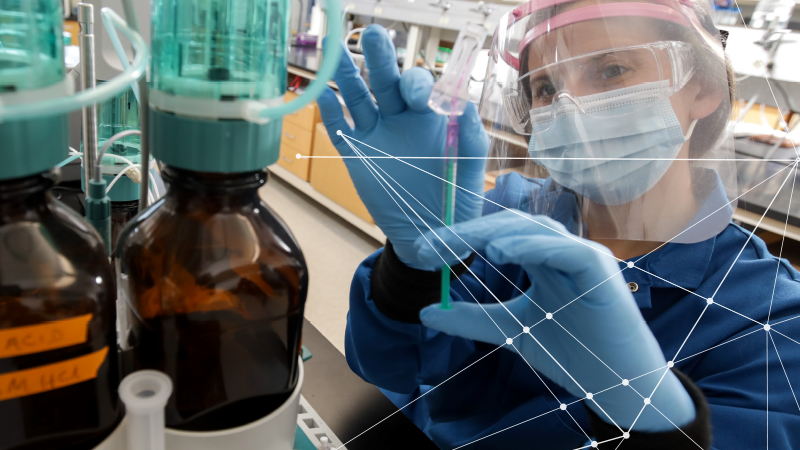Downloadable report highlights teaching strategies developed during COVID-19 pandemic
February 2, 2021

Throughout the nearly 200-year history of Rensselaer Polytechnic Institute, the university has prized flexibility and ingenuity in its delivery of higher education. This mindset has especially proven to be an asset during the COVID-19 pandemic, which required the entire campus to shift to remote instruction in the spring and summer of 2020, followed by a combination of in-person, online, and hybrid courses in subsequent semesters.
“Pandemic-Proof Pedagogy at Rensselaer,” a new report released today by the Strategic Communications and External Relations team at the Institute, highlights some of the strategies Rensselaer faculty have developed and implemented in order to continue providing students with a robust academic experience during the ongoing global health crisis.
“Rensselaer prepares students to learn and lead in a world that demands adaptability and resilience,” said Richie Hunter, the vice president for strategic communications and external relations at Rensselaer. “As this report shows, our faculty members have modeled these traits during this pandemic. Through creative and thoughtful adjustments to their teaching, they have maintained — and even improved — the outstanding academic experience that is the hallmark of a Rensselaer education.”
“Pandemic-Proof Pedagogy at Rensselaer,” which is available for download, specifically showcases tools and approaches that have been used to provide experiential education, cultivate community, utilize virtual environments, and enhance student assessment and support in a fluid environment, where students and instructors must be able to seamlessly shift between modes of instruction.
The report features a number of faculty, including Shayla Sawyer, an associate professor in the Department of Electrical, Computer, and Systems Engineering. She discusses how shifting the focus of exams to evaluate students’ thought processes, rather than merely their ability to produce the correct answer, can yield more meaningful results and help preserve academic integrity.
Emily Liu, a professor in the Department of Mechanical, Aerospace, and Nuclear Engineering, shares her perspective on the value of meeting with students in virtual classroom environments. Rhett Russo, an assistant professor in the School of Architecture, identifies the tools that have helped him recreate the collaborative experience of working together in a studio space for his online courses.
As might be expected from the country's first technological university, many of the approaches documented in the report make use of cutting-edge technologies. For example, the report discusses the imaginative ways that Hao Zhao, a professor and chair of the teaching excellence committee in the Lally School of Management, uses artificial intelligence to improve student engagement and assessment in his remote courses. Like many of those featured, Zhao expects several the teaching techniques developed during the pandemic to be relevant well into the future.
“Some of the AI techniques that proved useful in online classes during the pandemic will continue to have an important role beyond it, no matter online or offline,” he said.